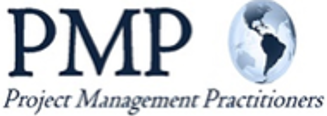Articles & Events, IT
10 Interview Tips

‘WE DELIVER’
1. Find out about the company
You need to do some research on the company before your job interview.
Knowing about:
- the company culture
- the latest company news
- the structure of the company
- the department or team the successful job candidate will join gives you a real advantage in the interview.
A candidate is expected to enter into a conversation with the interviewer, not just respond to questions. Having information to hand about the company makes this possible.
2. Go through your resume
Top 10 interview tips include reading through your resume carefully.
Review your resume together with the job posting and any job details that you have.
Make a note of any areas of concern that the interviewer may have.
Plan how to handle these concerns.
If you have gaps in your employment history or a complicated reason for leaving a company, think about how you will answer questions relating to these issues.
Consider getting PMP Practitioners to review your CV: https://pmp-practitioners.com/candidates/
3. Prepare for common job interview questions
Know which interview questions you can expect to be asked.
Preparing appropriate responses will ensure that you are confident and professional in your interview.
It is often difficult to formulate good answers when you are sitting in the interview hot seat. Preparation and practice will help you manage this.
4. Prepare for behavioral interview questions
Most companies now use a combination of traditional interview questions and behavioral interview questions to assess a candidate’s suitability.
A behavioral question will ask candidates to provide an example of when they have previously used a skill, competency or behavior.
The candidate is expected to describe the specific experience clearly and concisely.
Pre-consideration of these behavioural questions will pay dividends…
5. Have a list of questions to ask
At some point in the interview you will be asked “Do you have any questions?” It is critical to your success to be able to come up with a couple of insightful questions to ask the interviewer.
Job candidates who respond with “No, I think you have covered everything” are putting themselves at a disadvantage.
The interviewer wants to know that the candidate has spent a reasonable amount of time thinking about the job opportunity. By having a list of prepared questions to ask, you are demonstrating a professional and proactive approach to your job interview.
6. Include supporting evidence
Impress the interviewer with evidence of your skills, experience and abilities.
Job references, character references, proof of qualifications and training and relevant work samples can all provide valid support that you are the right person for the job. Take the originals and copies of all the documents so that the interviewer can attach the copies to your job application and resume if he or she wants.
7. Carry out a practice interview
Practice your job interview with a friend or family member ahead of time. This will make the actual interview much easier. Preparation builds self-confidence and self-confidence leads to success.
A mock interview will give you the opportunity to practice your interview questions and answers, to refine your interview technique and to receive feedback on how you come across in the job interview.
8. Make the right first impression
The first impression you make on a potential employer is crucial to job interview success. This impression is going to be based on your appearance including what you are wearing and how you come across in the first few minutes.
Different companies and different jobs require different types of interview dress. The job candidate needs to find out the company dress code and dress appropriately for the interview.
9. Successfully close the interview
The closing stage of the job interview is crucial. You want to leave the interviewer with the best final impression.
A strong close to the interview will encourage the interviewer to retain a positive picture of you and your suitability for the job.
10. Follow up after the interview
Send a thank you note within 24 hours of your job interview. This is not only the correct interview etiquette to follow but it also reinforces your interest in the job. It provides the opportunity to highlight why you are a good match for the position.
Finally:
GOOD LUCK…
